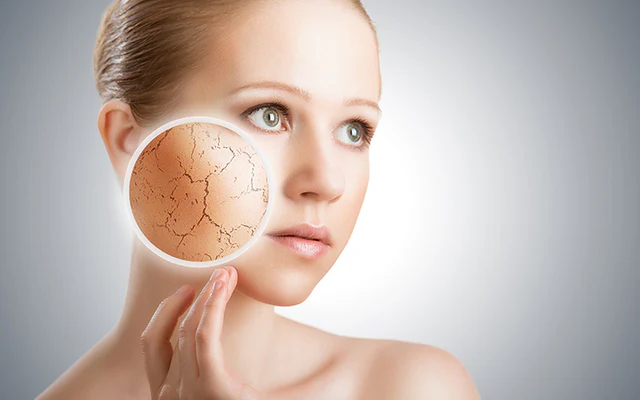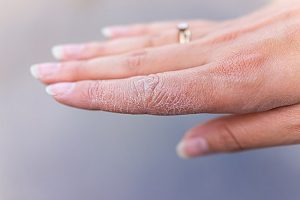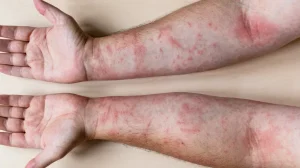
6 Reasons You May Have Dry, Itchy Skin and How to Prevent It
Dry, itchy skin can be uncomfortable and itchy. Dry, itchy skin can be treated with certain treatments and lifestyle changes.
Do you find yourself itching frequently because of persistent, uncomfortable sensations? Dry, itchy skin is a condition that can cause your skin to appear flaky and cracked. This problem can be caused by your environment, lifestyle choices, and skin conditions like psoriasis. The good news is that there are home remedies and over-the-counter medications that can help relieve the symptoms. Understanding the root causes of dry, itchy skin and using these simple home remedies can help you find relief quickly.
What is dry skin?
Dry skin, also known as xerosis, is characterized by rough, scaly, and itchy skin. It occurs when the function of the stratum corneum (the upper layer of the skin) is compromised. A study published in the International Journal of Allergology found that as the epidermis differentiates and dehydrates, the lipid composition of this layer changes, leading to skin irritation and a decrease in the skin’s natural moisturizing factors (NMFs). These conditions can cause skin discoloration, discomfort, itching, and can affect wound healing. Other types of skin conditions, including dermatitis, can cause severe pain and affect the patient’s quality of life.

What Causes Dry and Itchy Skin?
Here are some causes of dry and itchy skin that you should know about:
1. Contact dermatitis
Also known as contact eczema, it is a skin condition caused by allergy or irritation to substances that come into contact with the skin, according to research published in the journal
StatPearls. When a person with the condition comes into contact with an allergen or irritant, their body’s immune system overwhelms them, causing pain and itching. Allergens and irritants that can cause dermatitis include:
- Nickel – Found in jewelry, coins, and some clothing clasps.
- Fragrances – Found in many products, including soaps, perfumes, and cosmetics.
- Irritants – Harsh chemicals, soaps, detergents, and solvents.
- Latex – Found in gloves, balloons, and other products.
When people with dermatitis come into contact with one of these substances, their skin becomes inflamed and dry. This can cause irritation, discomfort, and sometimes even cracking or peeling of the skin.
2. Atopic eczema
Atopic eczema, also known as atopic dermatitis, is a type of skin disease that usually causes dry, itchy skin. A study published in the Journal of the American Medical Association showed that this condition results in red, inflamed skin that can be itchy, scaly, or oozing. The exact cause of atopic eczema is unknown, but it is believed to be a combination of genetic and environmental factors. People with atopic eczema are very sensitive to irritants and allergens; these substances can cause rashes and cause the skin to dry and itch. The constant scratching associated with atopic eczema can further irritate the skin’s immune system, leading to a vicious cycle of dryness, itching, and inflammation.
3. Seborrheic dermatitis
Seborrheic dermatitis is a type of skin condition characterized by red, scaly patches on the skin. It usually affects areas with high sebum levels, such as the scalp, face, and chest. The cause is unknown, but it is believed to be related to an overgrowth of a type of yeast called Malassezia. A study published by StatPearls found that this yeast feeds on oil produced by the skin, causing inflammation and flaking. The excessive flaking and dryness caused by seborrheic dermatitis can cause irritation and discomfort. In severe cases, the condition can also affect the eyebrows, eyelids, and behind the ears.
4. Psoriasis
Psoriasis is an autoimmune disease that causes rapid skin growth. This rapid growth results in the formation of thick, scaly patches. These patches can be itchy, painful, and sometimes embarrassing. The overgrowth of skin caused by psoriasis can cause irritation, dryness, and chafing on the skin. Dryness can cause irritation and discomfort. People with psoriasis can also get infected through cracks in the skin, which can cause dryness and discomfort.
5. Environmental conditions
Environmental factors cause dryness and itching of the skin. Cold, dry air can cause dryness of the skin because low humidity causes the skin to lack moisture. Central heating and air conditioning can reduce indoor humidity, further drying out the skin. Too much sunlight can damage the skin’s immune system, causing dryness and irritation. In addition, exposure to certain irritants and chemicals, such as harsh soaps, detergents and solvents, can cause the skin to become dry and itchy.
6. Lifestyle factors
Lifestyle factors can cause the skin to become dry and itchy. Frequent showering or bathing, especially in hot water, can strip your skin of its natural oils, causing dryness. Using harsh soaps and cleansers can irritate the skin and strip it of vital moisture. Some medications such as diuretics, corticosteroids and retinoids can also cause the skin to dry out along with their side effects. Adding that you should also not forget to moisturize your skin regularly.

How to prevent dry and itchy skin?
Some simple and effective ways to prevent skin irritation include:
1. Moisturize regularly
This is the foundation of preventing dry skin. Apply a gentle, unscented moisturizer immediately after a shower or bath while your skin is still damp. Look for moisturizers that contain ingredients like glycerin, urea, or ceramides, which help lock in moisture.
2. Limit bath time and temperature
Long, hot showers or baths can strip the skin of its natural oils. Take short, lukewarm showers or baths. Consider using a gentle cleanser that won’t irritate your skin.
3. Protect skin from environmental factors
Use a moisturizer with SPF, especially when you are outside in cold, dry weather or on sunny days. This will protect your skin from harmful UV rays and help prevent dryness.
4. Avoid allergens and irritants
Identify and avoid chemicals that can irritate the skin. These can include harsh soaps, detergents, perfumes, or certain fabrics. Patch testing can help identify potential allergies.
5. Stay hydrated
Drink plenty of water to help your skin stay hydrated from the inside. Drink at least 8 glasses of water every day to keep your skin hydrated.
6. Consider using a humidifier
If you live in a dry climate, using a humidifier can help increase the moisture in the air, which is good for your skin. Ask your doctor if using a humidifier may be beneficial to your skin.
How to treat dry, itchy skin?
Here are some ways to treat dry, itchy skin:
1. Improve your lifestyle
Drink enough water.
Eat a nutritious diet that includes plenty of fruits and vegetables and is rich in protein, fiber, and probiotics.
Do not smoke, do not drink alcohol, and avoid prolonged exposure to sunlight.
Regularly engage in moderate exercise or meditation to maintain a healthy mind and body.
Use acidic pH and moisturizing soap for daily hygiene.
Immediately after a hot or cold shower, use a general product to keep moisture away from the skin.
Avoid friction by scrubbing with a sponge or shower glove.
2. Dress in comfortable clothing
Wear loose, soft, hypoallergenic fabrics, preferably cotton.
You should not wear synthetic and woolen clothing as they can irritate the skin. Do not use perfumes, colognes, perfumes or similar products that contain alcohol.
Wear protective eyewear to prevent skin drying and irritation in the event of exposure to certain chemicals.
These changes will help you get rid of dry, itchy skin instantly.
Natural Solution for Dry and Itchy Skin
1. Oatmeal Bath
Ingredients:
1 cup oatmeal
Cheesecloth or fine-mesh filter
Directions:
Place the oatmeal in a blender or food processor and grind until fine powder.
Fill the tub with warm water.
Pour the ground oats into a cheesecloth or strainer and tie it tightly. Place the bag in the tub and submerge the oatmeal in the water.
Soak in oatmeal bath for 15-20 minutes.
After soaking, dry the skin with a soft towel.
2. Coconut oil
Apply a small amount of coconut oil directly to the affected area and gently massage into the skin. You can use it as a moisturizer during the day or at night.
3. Aloe Vera Gel
Gently apply aloe vera gel directly to dry, itchy skin. Massage until completely absorbed. Allow the gel to dry completely before using other products.
4. Shea butter
Ingredients:
1/4 cup shea butter
1/4 cup coconut oil
2 tablespoons beeswax
1 teaspoon vitamin E oil
Essential oil of your choice (optional)
Directions:
In a double boiler or heatproof bowl, place the shea butter, coconut oil, and beeswax over a pot of simmering water and melt together, stirring occasionally.
Once the ingredients are completely dissolved, remove the bowl from the heat and stir in the vitamin E oil.
If needed, add a few drops of your favorite essential oil for more scent.
Pour the mixture into a clean jar or container.
Let the sugar cool completely before using.
How to use:
Apply a small amount of shea butter to dry, irritated skin and massage gently.
You can use this cream as a daily moisturizer.

Something to remember!
Do not use this home remedy if you are allergic to coconut or oatmeal, or if your condition does not improve despite consuming these foods.
Seek help if xerosis is associated with concomitant diseases such as diabetes, kidney failure, or thyroid disease, or if xerosis is associated with other skin conditions such as eczema, psoriasis, ichthyosis, or any mental illness.
Patients undergoing radiation or medical treatment should consult a specialist before starting dryness treatment.
If dry skin has been present since birth or if a family member has a similar history, a thorough examination should be performed to determine the presence of the disease.
